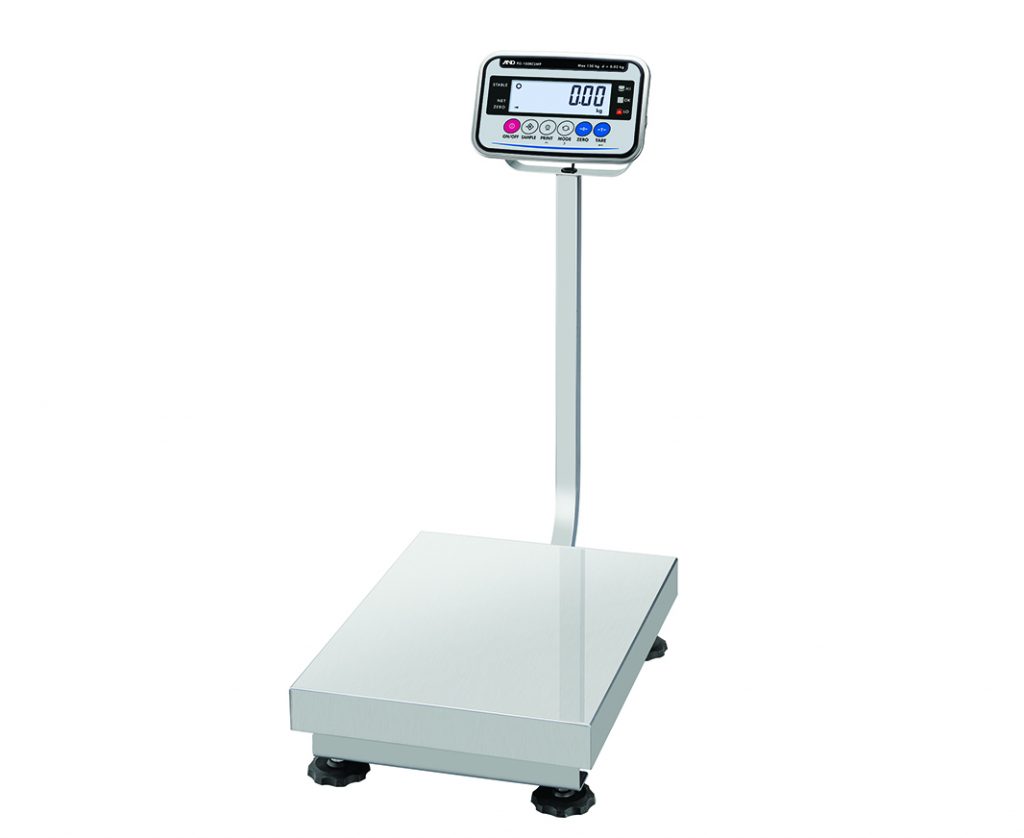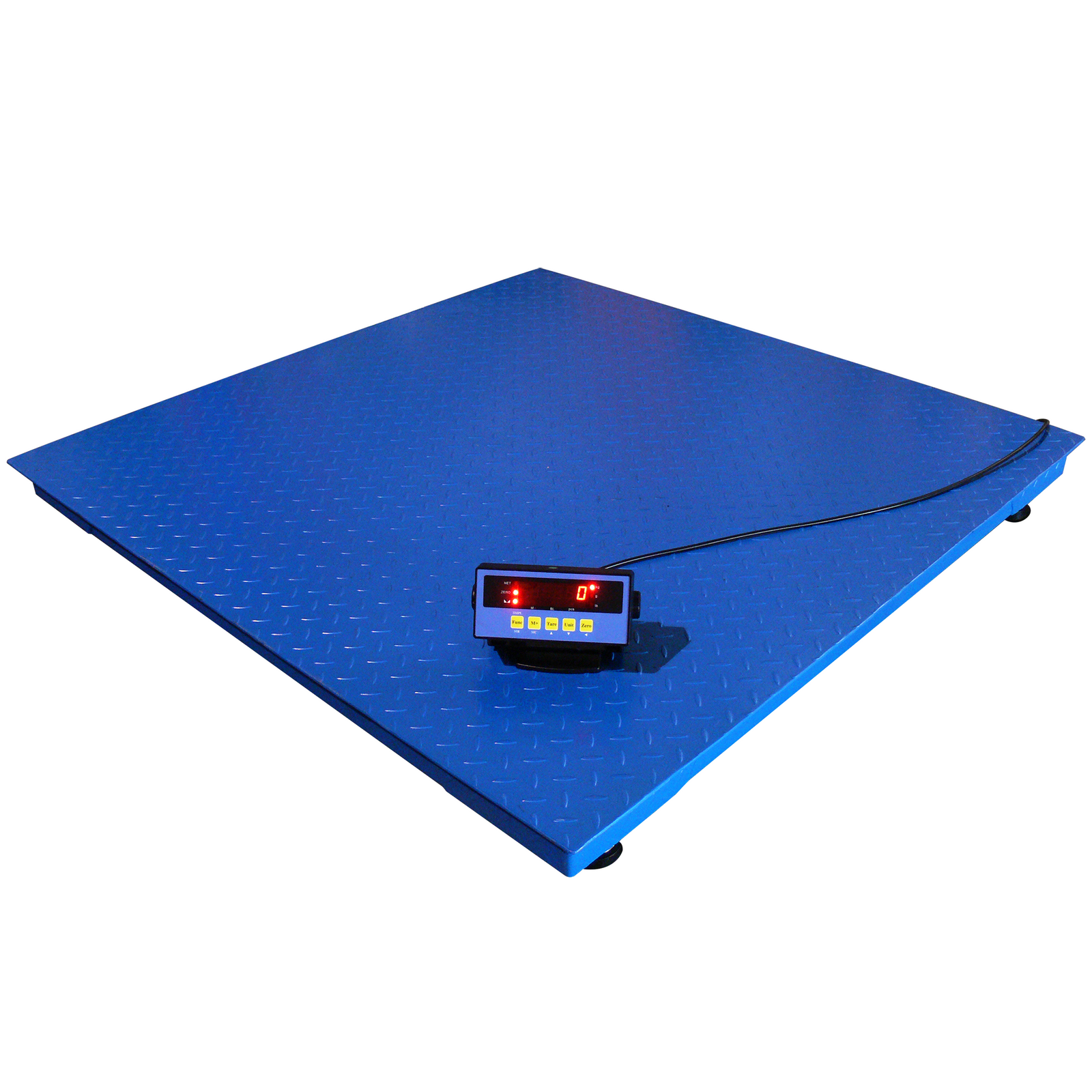How Industrial Scales Improve Precision in Production and Logistics
Industrial scales are integral to the accuracy called for in production and logistics, as they straight influence the accuracy of weight measurements crucial for effective manufacturing and supply practices. Industrial Scales. By making sure that products are weighed precisely, organizations can alleviate mistakes that can result in substantial economic consequences. The arrival of advanced innovations in evaluating systems is transforming typical procedures. Nonetheless, recognizing the complete degree of these advancements and their effects for future operations invites a more detailed evaluation of just how advancing methods can redefine accuracy requirements in the sector.
Importance of Precision in Operations
In the realm of manufacturing and logistics, precision is the keystone of functional effectiveness. Precise dimensions are necessary for maintaining quality assurance, optimizing source allocation, and guaranteeing compliance with sector requirements. When operations count on specific information, organizations can lessen waste, improve manufacturing timelines, and boost general efficiency.
The value of accuracy prolongs beyond straightforward dimension; it additionally influences decision-making processes. For example, specific weight readings can identify proper stock levels, enhance supply chain logistics, and assist in precise invoicing. Moreover, errors in dimensions can result in expensive mistakes, such as overproduction or underestimating product needs, which can endanger project timelines and success.
By applying strenuous measurement requirements, organizations can identify ineffectiveness and establish improvements, inevitably leading to enhanced consumer fulfillment. Thus, investing in accuracy dimension tools, such as commercial ranges, is not merely a technological consideration however a calculated necessary for success in the manufacturing and logistics fields.
Kinds Of Industrial Scales
Various kinds of industrial scales play a vital function in attaining the precision needed for reliable production and logistics operations. Each kind is made to meet certain demands, making certain precise dimension of products, parts, and items.
One usual kind is the system scale, which offers a flat surface for weighing bulk products or big products. These ranges are often used in stockrooms and delivery centers. Another kind is the bench range, generally smaller sized and made use of for evaluating private plans or smaller batches of items. These scales are vital in quality control procedures. Industrial Scales.
For applications where precision is vital, analytical equilibriums are employed. These high-accuracy ranges are made use of in research laboratories and research settings to determine small quantities with utmost precision. Flooring ranges, designed for durable evaluating, are perfect for considering big pallets or containers, often incorporated with forklifts for performance.
Furthermore, load cells are used in different applications for real-time weight dimension and information collection. Each of these ranges adds uniquely to the functional effectiveness, making sure that companies can preserve accuracy throughout their manufacturing and logistics processes. Recognizing the types of commercial scales is necessary for enhancing performance and attaining operational quality.

Influence On Supply Administration
Exact considering is essential for efficient inventory monitoring, as it directly influences supply precision and functional performance. In production and logistics, exact dimension of products and materials ensures that supply documents reflect real stock levels, lowering inconsistencies that can bring about overstocking or stockouts. Industrial ranges offer the required accuracy to consider things properly, making it possible for organizations to keep a dependable stock system.
In addition, review exact weighing contributes to far better forecasting and planning. With accurate data on supply levels, organizations can make enlightened choices concerning purchase and manufacturing schedules. This minimizes the danger of excess supply, which can bind resources and rise storage space expenses, along with stop lacks that may interrupt procedures.
Furthermore, the combination of industrial scales with stock monitoring systems facilitates real-time tracking of supply motions. This streamlines the process of upgrading supply documents, boosting transparency and liability throughout the supply chain. Ultimately, accurate evaluating not just supports effective inventory administration however also drives total functional performance, enabling organizations to respond quickly to market needs and keep an one-upmanship in their corresponding industries.
Enhancing Quality Assurance
Effective stock administration not only ensures optimum stock degrees but also lays the foundation for durable quality assurance processes. Industrial ranges play a crucial function in enhancing top quality control by providing accurate weight dimensions that are important for maintaining product integrity. Constant weight verification makes it possible for producers to comply with specifications, making certain that each item meets the required quality criteria.
In high-stakes settings, such as food production or pharmaceuticals, also minor weight inconsistencies can result in considerable conformity concerns. By incorporating commercial ranges into the assembly line, business can check item weights in genuine time, permitting prompt corrective actions if irregularities are detected. This aggressive strategy minimizes waste and improves overall item reliability.
Furthermore, exact evaluating promotes better formula of resources, which is essential in industries like chemicals and cosmetics. By making sure that component proportions continue to be consistent, suppliers can accomplish superior product quality, boosting client satisfaction and minimizing returns.
Future Patterns in Weighing Innovation
The future of evaluating find out here now modern technology is positioned for substantial improvements driven by automation, connectivity, and information analytics. As sectors progress, the combination of advanced sensors and IoT (Web of Points) capacities will make it possible for real-time monitoring and reporting of weight data. This connection will certainly not just boost functional performance but also promote anticipating maintenance, reducing downtime and enhancing productivity.
Moreover, the consolidation of expert system and artificial intelligence algorithms into weighing systems will boost data evaluation abilities. These innovations can identify anomalies and patterns, enabling even more informed decision-making and enhanced supply chain administration. The rise of cloud-based options will make it possible for smooth information sharing throughout systems, making certain that stakeholders have accessibility to current info at all times.
Sustainability will certainly also play a crucial duty in future weighing technology. As businesses strive to decrease their carbon footprint, weighing systems that integrate energy-efficient designs and products will come to be significantly important. In addition, advancements in electronic weighing ranges will support much better resource administration by providing accurate measurements that decrease waste.
Final Thought
In final thought, commercial scales considerably improve accuracy in manufacturing and logistics by providing precise weight measurements important for reliable procedures. Their function Discover More Here in stock management, quality assurance, and integration with innovative innovations emphasizes their relevance in reducing disparities and enhancing resource allotment. As industries continue to progress, the fostering of ingenious considering remedies will even more support operational efficiency and minimize waste, inevitably adding to boosted performance and competition on the market.
One usual kind is the platform range, which supplies a level surface area for considering huge things or bulk products. An additional type is the bench scale, generally smaller sized and made use of for weighing individual plans or smaller sized sets of products. Floor ranges, developed for sturdy considering, are perfect for evaluating huge pallets or containers, commonly incorporated with forklifts for efficiency.
Industrial ranges give the needed accuracy to weigh products properly, making it possible for services to preserve a reliable supply system.
